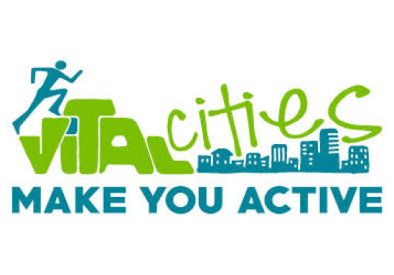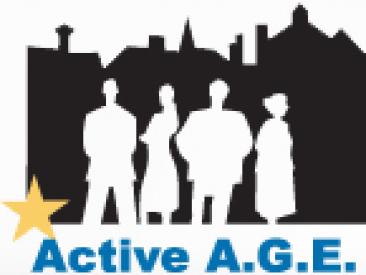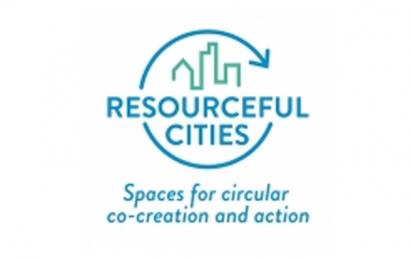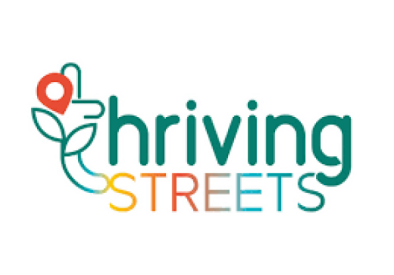Networks
Discover the URBACT Networks, their cities, their plans, and recommendations. An URBACT network brings together EU cities willing to exchange ideas and produce integrated local policies with the help of their peers, local stakeholders and URBACT experts.
Interested in taking part in an URBACT Network? Find out more about the upcoming calls for Networks, how to join a Network as an expert or how to become a Local URBACT Group member, get involved!
- 3813ClosedAction Planning Network891, 585, 704, 292, 987, 681, 961, 247, 259, 676259Cáceres39.47649, -6.37224
- 3813ClosedAction Planning Network891, 585, 704, 292, 987, 681, 961, 247, 259, 676704Patras38.24664, 21.734574
- 3813ClosedAction Planning Network891, 585, 704, 292, 987, 681, 961, 247, 259, 676676Opole50.671062, 17.926126
- 3813ClosedAction Planning Network891, 585, 704, 292, 987, 681, 961, 247, 259, 676292Ciudad Real38.98483, -3.927378
- 3813ClosedAction Planning Network891, 585, 704, 292, 987, 681, 961, 247, 259, 676987Zagreb45.815011, 15.971877
- 3813ClosedAction Planning Network891, 585, 704, 292, 987, 681, 961, 247, 259, 676681Oslo59.911111, 10.752778
- 3813ClosedAction Planning Network891, 585, 704, 292, 987, 681, 961, 247, 259, 676961Vila Nova de Famalicão41.411243340906, -8.5237895138068
- 3813ClosedAction Planning Network891, 585, 704, 292, 987, 681, 961, 247, 259, 676891The Hague52.070498, 4.3007
- 3813ClosedAction Planning Network891, 585, 704, 292, 987, 681, 961, 247, 259, 676247Bucharest 3rd district44.426767, 26.102538
- 3813ClosedAction Planning Network891, 585, 704, 292, 987, 681, 961, 247, 259, 676585Mechelen51.02574, 4.47762
- 771ClosedImplementation Network459, 484, 559, 562, 579, 747, 843, 917, 974459Ibi38.621425, -0.578403
- 772Closed194, 303, 415, 512, 566, 637, 895, 911, 114566Lyon45.757281, 4.835503
- 771ClosedImplementation Network459, 484, 559, 562, 579, 747, 843, 917, 974917Újbuda47.463808, 19.022501
- 771ClosedImplementation Network459, 484, 559, 562, 579, 747, 843, 917, 974484Kaunas54.898521, 23.903597
- 772Closed194, 303, 415, 512, 566, 637, 895, 911, 114637Naples40.851775, 14.268124
- 771ClosedImplementation Network459, 484, 559, 562, 579, 747, 843, 917, 974974Waterford52.258729, -7.112688
- 771ClosedImplementation Network459, 484, 559, 562, 579, 747, 843, 917, 974559Loulé37.137919, -8.020216
- 772Closed194, 303, 415, 512, 566, 637, 895, 911, 114895Timisoara45.753959, 21.227607
- 772Closed194, 303, 415, 512, 566, 637, 895, 911, 114194Barcelona41.385064, 2.173404
- 771ClosedImplementation Network459, 484, 559, 562, 579, 747, 843, 917, 974562Lublin51.246454, 22.568446
- 772Closed194, 303, 415, 512, 566, 637, 895, 911, 114911Trikala39.555732, 21.767895
- 772Closed194, 303, 415, 512, 566, 637, 895, 911, 114303Copenhagen55.676097, 12.568337
- 771ClosedImplementation Network459, 484, 559, 562, 579, 747, 843, 917, 974579Maribor46.55465, 15.645881
- 772Closed194, 303, 415, 512, 566, 637, 895, 911, 114114Turin45.070312, 7.686857
- 772Closed194, 303, 415, 512, 566, 637, 895, 911, 114415Glasgow55.864237, -4.251806
- 771ClosedImplementation Network459, 484, 559, 562, 579, 747, 843, 917, 974747Ravenna44.417977, 12.201882
- 772Closed194, 303, 415, 512, 566, 637, 895, 911, 114512Krakow50.06465, 19.94498
- 771ClosedImplementation Network459, 484, 559, 562, 579, 747, 843, 917, 974843Sofia42.697708, 23.321868
- 770Closed131, 185, 262, 328, 367, 578, 683, 832, 892328Dodoni39.543354, 20.772925
- 769Closed157, 180, 194, 210, 410, 419, 635, 843, 877635Nantes47.21725, -1.55336
- 769Closed157, 180, 194, 210, 410, 419, 635, 843, 877157Ampelokipi - Menemeni40.65286, 22.92417
- 770Closed131, 185, 262, 328, 367, 578, 683, 832, 892367Espinho41.007191, -8.641033
- 769Closed157, 180, 194, 210, 410, 419, 635, 843, 877843Sofia42.697708, 23.321868
- 769Closed157, 180, 194, 210, 410, 419, 635, 843, 877180Aveiro40.640506, -8.653754
- 770Closed131, 185, 262, 328, 367, 578, 683, 832, 892578Mantova45.156777, 10.788126
- 769Closed157, 180, 194, 210, 410, 419, 635, 843, 877877Tallinn59.436961, 24.753575
- 769Closed157, 180, 194, 210, 410, 419, 635, 843, 877194Barcelona41.385064, 2.173404
- 770Closed131, 185, 262, 328, 367, 578, 683, 832, 892683Ostfold County
- 770Closed131, 185, 262, 328, 367, 578, 683, 832, 892131Alba Iulia46.066944, 23.57
- 769Closed157, 180, 194, 210, 410, 419, 635, 843, 877210Berlin52.520007, 13.404954
- 770Closed131, 185, 262, 328, 367, 578, 683, 832, 892832Sigulda57.149644, 24.858265
- 770Closed131, 185, 262, 328, 367, 578, 683, 832, 892185Baena37.617335, -4.3244
- 769Closed157, 180, 194, 210, 410, 419, 635, 843, 877410Ghent51.054342, 3.717424
- 770Closed131, 185, 262, 328, 367, 578, 683, 832, 892892The Kortrijk Region50.819557, 3.257632
- 770Closed131, 185, 262, 328, 367, 578, 683, 832, 892262Cahors44.4475, 1.442
- 769Closed157, 180, 194, 210, 410, 419, 635, 843, 877419Gothenburg57.70887, 11.97456
- 766ClosedAction Planning Network187, 194, 229, 399, 522, 599, 701, 862, 114, 979599Milan45.465422, 9.185924
- 766ClosedAction Planning Network187, 194, 229, 399, 522, 599, 701, 862, 114, 979701Paris48.860806, 2.343075
- 766ClosedAction Planning Network187, 194, 229, 399, 522, 599, 701, 862, 114, 979187Baia Mare47.666667, 23.583333
- 766ClosedAction Planning Network187, 194, 229, 399, 522, 599, 701, 862, 114, 979862Strasbourg48.583148, 7.747882
- 766ClosedAction Planning Network187, 194, 229, 399, 522, 599, 701, 862, 114, 979194Barcelona41.385064, 2.173404
- 766ClosedAction Planning Network187, 194, 229, 399, 522, 599, 701, 862, 114, 979114Turin45.070312, 7.686857
- 766ClosedAction Planning Network187, 194, 229, 399, 522, 599, 701, 862, 114, 979229Braga41.545449, -8.426507
- 766ClosedAction Planning Network187, 194, 229, 399, 522, 599, 701, 862, 114, 979979Wroclaw51.107885, 17.038538
- 766ClosedAction Planning Network187, 194, 229, 399, 522, 599, 701, 862, 114, 979399Gdańsk54.352025, 18.646638
- 766ClosedAction Planning Network187, 194, 229, 399, 522, 599, 701, 862, 114, 979522Länsstyrelsen Skane55.990257, 13.595769
- 765Closed242, 401, 519, 567, 702, 853, 866, 877, 921, 976921Umea63.825847, 20.263035
- 765Closed242, 401, 519, 567, 702, 853, 866, 877, 921, 976519La Rochelle46.160329, -1.151139
- 765Closed242, 401, 519, 567, 702, 853, 866, 877, 921, 976976Westminster51.4995, -0.1333
- 765Closed242, 401, 519, 567, 702, 853, 866, 877, 921, 976567Maastricht50.851368, 5.690973
- 765Closed242, 401, 519, 567, 702, 853, 866, 877, 921, 976702Parma44.801485, 10.327904
- 765Closed242, 401, 519, 567, 702, 853, 866, 877, 921, 976853Split43.508132, 16.440193
- 765Closed242, 401, 519, 567, 702, 853, 866, 877, 921, 976866Suceava47.651389, 26.255556
- 765Closed242, 401, 519, 567, 702, 853, 866, 877, 921, 976242Brussels50.85034, 4.35171
- 765Closed242, 401, 519, 567, 702, 853, 866, 877, 921, 976877Tallinn59.436961, 24.753575
- 765Closed242, 401, 519, 567, 702, 853, 866, 877, 921, 976401Gdynia54.51889, 18.530541
- 764Closed223, 299, 320, 407, 421, 499, 515, 635, 731, 791, 902, 977635Nantes47.21725, -1.55336
- 764Closed223, 299, 320, 407, 421, 499, 515, 635, 731, 791, 902, 977299Coimbra40.203315, -8.410257
- 764Closed223, 299, 320, 407, 421, 499, 515, 635, 731, 791, 902, 977731Poznań52.406374, 16.925168
- 764Closed223, 299, 320, 407, 421, 499, 515, 635, 731, 791, 902, 977320Daugavpils55.899178, 26.610201
- 764Closed223, 299, 320, 407, 421, 499, 515, 635, 731, 791, 902, 977791Sabadell41.546207, 2.107034
- 764Closed223, 299, 320, 407, 421, 499, 515, 635, 731, 791, 902, 977407Genoa44.411111, 8.932778
- 764Closed223, 299, 320, 407, 421, 499, 515, 635, 731, 791, 902, 977902Torun53.01379, 18.598444
- 764Closed223, 299, 320, 407, 421, 499, 515, 635, 731, 791, 902, 977421Granada37.177336, -3.598557
- 764Closed223, 299, 320, 407, 421, 499, 515, 635, 731, 791, 902, 977977Wolverhampton
- 764Closed223, 299, 320, 407, 421, 499, 515, 635, 731, 791, 902, 977499Klaipèda55.703295, 21.144279
- 764Closed223, 299, 320, 407, 421, 499, 515, 635, 731, 791, 902, 977515Kristiansand58.159912, 8.018206
- 764Closed223, 299, 320, 407, 421, 499, 515, 635, 731, 791, 902, 977223Bologna44.494887, 11.342616
- 763ClosedAction Planning Network217, 41, 224, 246, 388, 427, 684, 718, 726, 114427Grenoble-Alpes45.188529, 5.724524
- 763ClosedAction Planning Network217, 41, 224, 246, 388, 427, 684, 718, 726, 114684Ostrava49.82139667651, 18.266905650744
- 763ClosedAction Planning Network217, 41, 224, 246, 388, 427, 684, 718, 726, 114217Bielsko-Biala49.822377, 19.058384
- 763ClosedAction Planning Network217, 41, 224, 246, 388, 427, 684, 718, 726, 114718Plasencia40.042095, -6.083807
- 763ClosedAction Planning Network217, 41, 224, 246, 388, 427, 684, 718, 726, 11441Bilbao43.263013, -2.934985
- 763ClosedAction Planning Network217, 41, 224, 246, 388, 427, 684, 718, 726, 114726Porto41.157944, -8.629105
- 763ClosedAction Planning Network217, 41, 224, 246, 388, 427, 684, 718, 726, 114224Bordeaux44.837789, -0.57918
- 763ClosedAction Planning Network217, 41, 224, 246, 388, 427, 684, 718, 726, 114114Turin45.070312, 7.686857
- 763ClosedAction Planning Network217, 41, 224, 246, 388, 427, 684, 718, 726, 114246Bucharest44.4325, 26.103889
- 763ClosedAction Planning Network217, 41, 224, 246, 388, 427, 684, 718, 726, 114388Frankfurt50.110922, 8.682127
- 762ClosedAction Planning Network272, 367, 501, 555, 715, 825, 876, 884, 942884Telsiai55.982187, 22.239496
- 762ClosedAction Planning Network272, 367, 501, 555, 715, 825, 876, 884, 942367Espinho41.007191, -8.641033
- 762ClosedAction Planning Network272, 367, 501, 555, 715, 825, 876, 884, 942942Varaždin46.305746, 16.336607
- 762ClosedAction Planning Network272, 367, 501, 555, 715, 825, 876, 884, 942501Koblenz50.356943, 7.588996
- 762ClosedAction Planning Network272, 367, 501, 555, 715, 825, 876, 884, 942555Longford53.699221, -7.793984
- 762ClosedAction Planning Network272, 367, 501, 555, 715, 825, 876, 884, 942715Piacenza45.052621, 9.692984
- 762ClosedAction Planning Network272, 367, 501, 555, 715, 825, 876, 884, 942825Serres41.08499, 23.54757
- 762ClosedAction Planning Network272, 367, 501, 555, 715, 825, 876, 884, 942876Szombathely47.230685, 16.621844
- 762ClosedAction Planning Network272, 367, 501, 555, 715, 825, 876, 884, 942272Cartagena37.625683, -0.996584
- 761Closed132, 142, 223, 267, 505, 511, 562, 631, 734, 738, 814511Koszalin54.194322, 16.171491
- 761Closed132, 142, 223, 267, 505, 511, 562, 631, 734, 738, 814562Lublin51.246454, 22.568446
- 761Closed132, 142, 223, 267, 505, 511, 562, 631, 734, 738, 814132Albacete38.994349, -1.858542
- 761Closed132, 142, 223, 267, 505, 511, 562, 631, 734, 738, 814631Nagykálló47.874908, 21.844793
- 761Closed132, 142, 223, 267, 505, 511, 562, 631, 734, 738, 814142Almelo52.34861, 6.659633
- 761Closed132, 142, 223, 267, 505, 511, 562, 631, 734, 738, 814734Prague50.075538, 14.437801
- 761Closed132, 142, 223, 267, 505, 511, 562, 631, 734, 738, 814223Bologna44.494887, 11.342616
- 761Closed132, 142, 223, 267, 505, 511, 562, 631, 734, 738, 814738Preston53.763201, -2.70309
- 761Closed132, 142, 223, 267, 505, 511, 562, 631, 734, 738, 814267Candelaria28.3548, -16.37268
- 761Closed132, 142, 223, 267, 505, 511, 562, 631, 734, 738, 814814Satu Mare47.79, 22.89
- 761Closed132, 142, 223, 267, 505, 511, 562, 631, 734, 738, 814505Koprivnica46.163938, 16.833475
- 760ClosedAction Planning Network198, 202, 282, 296, 333, 398, 542, 557, 668, 804, 834834Siracusa37.075552, 15.286845
- 760ClosedAction Planning Network198, 202, 282, 296, 333, 398, 542, 557, 668, 804, 834333Dubrovnik42.650980298259, 18.094217872201
- 760ClosedAction Planning Network198, 202, 282, 296, 333, 398, 542, 557, 668, 804, 834398Gävle60.67488, 17.141273
- 760ClosedAction Planning Network198, 202, 282, 296, 333, 398, 542, 557, 668, 804, 834542Limerick52.66802, -8.630498
- 760ClosedAction Planning Network198, 202, 282, 296, 333, 398, 542, 557, 668, 804, 834198Barnsley
- 760ClosedAction Planning Network198, 202, 282, 296, 333, 398, 542, 557, 668, 804, 834557Loop city55.730275, 12.4249
- 760ClosedAction Planning Network198, 202, 282, 296, 333, 398, 542, 557, 668, 804, 834202Basingstoke and Deane51.247497, -1.217457
- 760ClosedAction Planning Network198, 202, 282, 296, 333, 398, 542, 557, 668, 804, 834668Nyíregyháza47.948239697976, 21.719801409213
- 760ClosedAction Planning Network198, 202, 282, 296, 333, 398, 542, 557, 668, 804, 834282Cesis57.308611, 25.266872
- 760ClosedAction Planning Network198, 202, 282, 296, 333, 398, 542, 557, 668, 804, 834804San Sebastián43.318334, -1.981231
- 760ClosedAction Planning Network198, 202, 282, 296, 333, 398, 542, 557, 668, 804, 834296Clermont ferrand45.777222, 3.087025
- 758ClosedAction Planning Network152, 443, 460, 587, 630, 659, 712, 744, 802, 935659Nort-sur-Erdre47.439552, -1.500919
- 758ClosedAction Planning Network152, 443, 460, 587, 630, 659, 712, 744, 802, 935712Petrinja45.442254, 16.276859
- 758ClosedAction Planning Network152, 443, 460, 587, 630, 659, 712, 744, 802, 935152Amarante41.269852, -8.081177
- 758ClosedAction Planning Network152, 443, 460, 587, 630, 659, 712, 744, 802, 935744Radlin50.049141, 18.476877
- 758ClosedAction Planning Network152, 443, 460, 587, 630, 659, 712, 744, 802, 935443Heerlen
- 758ClosedAction Planning Network152, 443, 460, 587, 630, 659, 712, 744, 802, 935802San Donà di Piave45.630335, 12.566099
- 758ClosedAction Planning Network152, 443, 460, 587, 630, 659, 712, 744, 802, 935460Idrija46.002945, 14.027846
- 758ClosedAction Planning Network152, 443, 460, 587, 630, 659, 712, 744, 802, 935935Valašské Meziříčí49.471804, 17.971137
- 758ClosedAction Planning Network152, 443, 460, 587, 630, 659, 712, 744, 802, 935587Medina del Campo41.308163, -4.915477
- 758ClosedAction Planning Network152, 443, 460, 587, 630, 659, 712, 744, 802, 935630Naas53.220565, -6.659308
- 757ClosedAction Planning Network131, 297, 322, 407, 410, 628, 692, 823, 879, 943943Varna43.21405, 27.914733
- 757ClosedAction Planning Network131, 297, 322, 407, 410, 628, 692, 823, 879, 943407Genoa44.411111, 8.932778
- 757ClosedAction Planning Network131, 297, 322, 407, 410, 628, 692, 823, 879, 943410Ghent51.054342, 3.717424
- 757ClosedAction Planning Network131, 297, 322, 407, 410, 628, 692, 823, 879, 943628Murcia37.99224, -1.130654
- 757ClosedAction Planning Network131, 297, 322, 407, 410, 628, 692, 823, 879, 943692Palermo38.115688, 13.361267
- 757ClosedAction Planning Network131, 297, 322, 407, 410, 628, 692, 823, 879, 943131Alba Iulia46.066944, 23.57
- 757ClosedAction Planning Network131, 297, 322, 407, 410, 628, 692, 823, 879, 943823SemaEst Paris48.856614, 2.352222
- 757ClosedAction Planning Network131, 297, 322, 407, 410, 628, 692, 823, 879, 943297CLLD Network - Lisbon38.722252, -9.139337
- 757ClosedAction Planning Network131, 297, 322, 407, 410, 628, 692, 823, 879, 943879Tartu58.377625, 26.729006
- 757ClosedAction Planning Network131, 297, 322, 407, 410, 628, 692, 823, 879, 943322Debrecen47.531605, 21.627312
- 756ClosedAction Planning Network154, 175, 235, 298, 410, 446, 635, 684, 731, 768635Nantes47.21725, -1.55336
- 756ClosedAction Planning Network154, 175, 235, 298, 410, 446, 635, 684, 731, 768154Amersfoort52.15, 5.383333
- 756ClosedAction Planning Network154, 175, 235, 298, 410, 446, 635, 684, 731, 768684Ostrava49.82139667651, 18.266905650744
- 756ClosedAction Planning Network154, 175, 235, 298, 410, 446, 635, 684, 731, 768175Athens37.983917, 23.72936
- 756ClosedAction Planning Network154, 175, 235, 298, 410, 446, 635, 684, 731, 768731Poznań52.406374, 16.925168
- 756ClosedAction Planning Network154, 175, 235, 298, 410, 446, 635, 684, 731, 768235Bremen53.079296, 8.801694
- 756ClosedAction Planning Network154, 175, 235, 298, 410, 446, 635, 684, 731, 768768Riga56.949649, 24.105186
- 756ClosedAction Planning Network154, 175, 235, 298, 410, 446, 635, 684, 731, 768298Cluj-Napoca46.766667, 23.583333
- 756ClosedAction Planning Network154, 175, 235, 298, 410, 446, 635, 684, 731, 768410Ghent51.054342, 3.717424
- 756ClosedAction Planning Network154, 175, 235, 298, 410, 446, 635, 684, 731, 768446Helsinki60.173324, 24.941025
- 755Closed202, 221, 380, 447, 453, 463, 536, 706, 776, 829447Hengelo52.257412, 6.792772
- 755Closed202, 221, 380, 447, 453, 463, 536, 706, 776, 829453Hoogeveen52.728616, 6.4901
- 755Closed202, 221, 380, 447, 453, 463, 536, 706, 776, 829463Igualada41.583333, 1.616667
- 755Closed202, 221, 380, 447, 453, 463, 536, 706, 776, 829536Liberec50.76628, 15.054339
- 755Closed202, 221, 380, 447, 453, 463, 536, 706, 776, 829202Basingstoke and Deane51.247497, -1.217457
- 755Closed202, 221, 380, 447, 453, 463, 536, 706, 776, 829706Pécs46.072735, 18.232266
- 755Closed202, 221, 380, 447, 453, 463, 536, 706, 776, 829221Bistrița47.133333, 24.5
- 755Closed202, 221, 380, 447, 453, 463, 536, 706, 776, 829776Romans45.044236, 5.052735
- 755Closed202, 221, 380, 447, 453, 463, 536, 706, 776, 829380Fermo43.158873, 13.720088
- 755Closed202, 221, 380, 447, 453, 463, 536, 706, 776, 829829Sibenik43.73502, 15.895204
- 754ClosedAction Planning Network219, 251, 252, 255, 512, 539, 559, 767, 829, 932, 954829Sibenik43.73502, 15.895204
- 754ClosedAction Planning Network219, 251, 252, 255, 512, 539, 559, 767, 829, 932, 954252Budapest 13th district
- 754ClosedAction Planning Network219, 251, 252, 255, 512, 539, 559, 767, 829, 932, 954932Usti Nad Labem50.661116, 14.053146
- 754ClosedAction Planning Network219, 251, 252, 255, 512, 539, 559, 767, 829, 932, 954255Burgas42.504793, 27.462636
- 754ClosedAction Planning Network219, 251, 252, 255, 512, 539, 559, 767, 829, 932, 954954Vestfold County59.170786, 10.114436
- 754ClosedAction Planning Network219, 251, 252, 255, 512, 539, 559, 767, 829, 932, 954512Krakow50.06465, 19.94498
- 754ClosedAction Planning Network219, 251, 252, 255, 512, 539, 559, 767, 829, 932, 954539Liepaja56.504668, 21.010806
- 754ClosedAction Planning Network219, 251, 252, 255, 512, 539, 559, 767, 829, 932, 954559Loulé37.137919, -8.020216
- 754ClosedAction Planning Network219, 251, 252, 255, 512, 539, 559, 767, 829, 932, 954219Birmingham52.483056, -1.893611
- 754ClosedAction Planning Network219, 251, 252, 255, 512, 539, 559, 767, 829, 932, 954767Rieti42.367441, 12.89751
- 754ClosedAction Planning Network219, 251, 252, 255, 512, 539, 559, 767, 829, 932, 954251Budapest47.497912, 19.040235
- 753ClosedAction Planning Network120, 152, 335, 352, 386, 399, 522, 632, 768386Forli44.22274, 12.040731
- 753ClosedAction Planning Network120, 152, 335, 352, 386, 399, 522, 632, 768399Gdańsk54.352025, 18.646638
- 753ClosedAction Planning Network120, 152, 335, 352, 386, 399, 522, 632, 768522Länsstyrelsen Skane55.990257, 13.595769
- 753ClosedAction Planning Network120, 152, 335, 352, 386, 399, 522, 632, 768120Aarhus56.162939, 10.203921
- 753ClosedAction Planning Network120, 152, 335, 352, 386, 399, 522, 632, 768632Nagykanizsa46.459022, 16.98968
- 753ClosedAction Planning Network120, 152, 335, 352, 386, 399, 522, 632, 768152Amarante41.269852, -8.081177
- 753ClosedAction Planning Network120, 152, 335, 352, 386, 399, 522, 632, 768768Riga56.949649, 24.105186
- 753ClosedAction Planning Network120, 152, 335, 352, 386, 399, 522, 632, 768335Dún Laoghaire Rathdown53.260215, -6.204721
- 753ClosedAction Planning Network120, 152, 335, 352, 386, 399, 522, 632, 768352Eindhoven51.441642, 5.469723
- 752ClosedAction Planning Network126, 130, 216, 229, 256, 615, 692, 770, 839, 851, 986216Bielefeld52.030229, 8.532471
- 752ClosedAction Planning Network126, 130, 216, 229, 256, 615, 692, 770, 839, 851, 986851South East Region of Malta35.937496, 14.375416
- 752ClosedAction Planning Network126, 130, 216, 229, 256, 615, 692, 770, 839, 851, 986229Braga41.545449, -8.426507
- 752ClosedAction Planning Network126, 130, 216, 229, 256, 615, 692, 770, 839, 851, 986986Zadar44.119371, 15.231365
- 752ClosedAction Planning Network126, 130, 216, 229, 256, 615, 692, 770, 839, 851, 986256Burgos42.343993, -3.696906
- 752ClosedAction Planning Network126, 130, 216, 229, 256, 615, 692, 770, 839, 851, 986615Morne-à-l’Eau16.328297, -61.478572
- 752ClosedAction Planning Network126, 130, 216, 229, 256, 615, 692, 770, 839, 851, 986692Palermo38.115688, 13.361267
- 752ClosedAction Planning Network126, 130, 216, 229, 256, 615, 692, 770, 839, 851, 986126Agii Anargyri Kamatero38.055128, 23.697829
- 752ClosedAction Planning Network126, 130, 216, 229, 256, 615, 692, 770, 839, 851, 986770Road and greeneries management54.352025, 18.646638
- 752ClosedAction Planning Network126, 130, 216, 229, 256, 615, 692, 770, 839, 851, 986130Aix Marseille Provence43.296482, 5.36978
- 752ClosedAction Planning Network126, 130, 216, 229, 256, 615, 692, 770, 839, 851, 986839Slatina44.430168, 24.37169
- 751ClosedAction Planning Network163, 239, 255, 415, 467, 482, 574, 729, 783, 893, 948729Potenza40.418219, 15.876004
- 751ClosedAction Planning Network163, 239, 255, 415, 467, 482, 574, 729, 783, 893, 948239Bristol51.454513, -2.58791
- 751ClosedAction Planning Network163, 239, 255, 415, 467, 482, 574, 729, 783, 893, 948783Rotterdam51.92442, 4.477733
- 751ClosedAction Planning Network163, 239, 255, 415, 467, 482, 574, 729, 783, 893, 948255Burgas42.504793, 27.462636
- 751ClosedAction Planning Network163, 239, 255, 415, 467, 482, 574, 729, 783, 893, 948893Thessaloniki40.736851, 22.920227
- 751ClosedAction Planning Network163, 239, 255, 415, 467, 482, 574, 729, 783, 893, 948415Glasgow55.864237, -4.251806
- 751ClosedAction Planning Network163, 239, 255, 415, 467, 482, 574, 729, 783, 893, 948948Vejle55.711311, 9.536354
- 751ClosedAction Planning Network163, 239, 255, 415, 467, 482, 574, 729, 783, 893, 948467Ioannina39.665029, 20.853747
- 751ClosedAction Planning Network163, 239, 255, 415, 467, 482, 574, 729, 783, 893, 948482Katowice50.264892, 19.023782
- 751ClosedAction Planning Network163, 239, 255, 415, 467, 482, 574, 729, 783, 893, 948574Malmö55.604981, 13.003822
- 751ClosedAction Planning Network163, 239, 255, 415, 467, 482, 574, 729, 783, 893, 948163Antwerp51.219448, 4.402464
- 750Closed332, 352, 432, 576, 600, 726, 841, 860, 866, 987600Miskolc48.096363, 20.762386
- 750Closed332, 352, 432, 576, 600, 726, 841, 860, 866, 987726Porto41.157944, -8.629105
- 750Closed332, 352, 432, 576, 600, 726, 841, 860, 866, 987841Smolyan41.577423, 24.701114
- 750Closed332, 352, 432, 576, 600, 726, 841, 860, 866, 987332Dublin53.349805, -6.26031
- 750Closed332, 352, 432, 576, 600, 726, 841, 860, 866, 987860Stockholm59.329324, 18.068581
- 750Closed332, 352, 432, 576, 600, 726, 841, 860, 866, 987352Eindhoven51.441642, 5.469723
- 750Closed332, 352, 432, 576, 600, 726, 841, 860, 866, 987866Suceava47.651389, 26.255556
- 750Closed332, 352, 432, 576, 600, 726, 841, 860, 866, 987432Guadalajara40.632476, -3.16017
- 750Closed332, 352, 432, 576, 600, 726, 841, 860, 866, 987987Zagreb45.815011, 15.971877
- 750Closed332, 352, 432, 576, 600, 726, 841, 860, 866, 987576Manchester
- 749ClosedAction Planning Network163, 187, 195, 241, 274, 341, 681, 844, 960163Antwerp51.219448, 4.402464
- 749ClosedAction Planning Network163, 187, 195, 241, 274, 341, 681, 844, 960844Solin43.542255, 16.491963
- 749ClosedAction Planning Network163, 187, 195, 241, 274, 341, 681, 844, 960187Baia Mare47.666667, 23.583333
- 749ClosedAction Planning Network163, 187, 195, 241, 274, 341, 681, 844, 960960Vienna48.208174, 16.373819
- 749ClosedAction Planning Network163, 187, 195, 241, 274, 341, 681, 844, 960195Barcelona Metropolitan Area41.390205, 2.154007
- 749ClosedAction Planning Network163, 187, 195, 241, 274, 341, 681, 844, 960241Brno49.19506, 16.606837
- 749ClosedAction Planning Network163, 187, 195, 241, 274, 341, 681, 844, 960274Casoria40.889321, 14.315193
- 749ClosedAction Planning Network163, 187, 195, 241, 274, 341, 681, 844, 960341Dusseldorf51.227741, 6.773456
- 749ClosedAction Planning Network163, 187, 195, 241, 274, 341, 681, 844, 960681Oslo59.911111, 10.752778
- 744ClosedTransfer Network255, 393, 580, 581, 682, 717, 800393Galati45.423333, 28.0425
- 744ClosedTransfer Network255, 393, 580, 581, 682, 717, 800580Mataro41.54211, 2.4445
- 744ClosedTransfer Network255, 393, 580, 581, 682, 717, 800581Matosinhos41.1844, -8.6963
- 744ClosedTransfer Network255, 393, 580, 581, 682, 717, 800682Ostend51.21551, 2.927
- 744ClosedTransfer Network255, 393, 580, 581, 682, 717, 800717Piraeus37.964, 23.632367
- 744ClosedTransfer Network255, 393, 580, 581, 682, 717, 800800Salerno40.67545, 14.79328
- 744ClosedTransfer Network255, 393, 580, 581, 682, 717, 800255Burgas42.504793, 27.462636
- 741ClosedTransfer Network158, 194, 399, 410, 458, 637, 737194Barcelona41.385064, 2.173404
- 741ClosedTransfer Network158, 194, 399, 410, 458, 637, 737399Gdańsk54.352025, 18.646638
- 741ClosedTransfer Network158, 194, 399, 410, 458, 637, 737410Ghent51.054342, 3.717424
- 741ClosedTransfer Network158, 194, 399, 410, 458, 637, 737458Iași47.156944, 27.590278
- 741ClosedTransfer Network158, 194, 399, 410, 458, 637, 737637Naples40.851775, 14.268124
- 741ClosedTransfer Network158, 194, 399, 410, 458, 637, 737737Presov48.99839, 21.23393
- 741ClosedTransfer Network158, 194, 399, 410, 458, 637, 737158Amsterdam52.370216, 4.895168
- 740ClosedTransfer Network119, 196, 540, 60, 562, 684, 843, 89160Lisbon38.721326219765, -9.1249960207984
- 740ClosedTransfer Network119, 196, 540, 60, 562, 684, 843, 891562Lublin51.246454, 22.568446
- 740ClosedTransfer Network119, 196, 540, 60, 562, 684, 843, 891684Ostrava49.82139667651, 18.266905650744
- 740ClosedTransfer Network119, 196, 540, 60, 562, 684, 843, 891843Sofia42.697708, 23.321868
- 740ClosedTransfer Network119, 196, 540, 60, 562, 684, 843, 891119Aalborg57.048, 9.9187
- 740ClosedTransfer Network119, 196, 540, 60, 562, 684, 843, 891891The Hague52.070498, 4.3007
- 740ClosedTransfer Network119, 196, 540, 60, 562, 684, 843, 891196Bari41.117143, 16.871872
- 740ClosedTransfer Network119, 196, 540, 60, 562, 684, 843, 891540Lille50.62925, 3.057256
- 738ClosedTransfer Network298, 593, 628, 726, 783, 114, 955783Rotterdam51.92442, 4.477733
- 738ClosedTransfer Network298, 593, 628, 726, 783, 114, 955114Turin45.070312, 7.686857
- 738ClosedTransfer Network298, 593, 628, 726, 783, 114, 955955Veszprém47.09327, 17.91149
- 738ClosedTransfer Network298, 593, 628, 726, 783, 114, 955298Cluj-Napoca46.766667, 23.583333
- 738ClosedTransfer Network298, 593, 628, 726, 783, 114, 955593Métropole du Grand Paris48.862108, 2.320483
- 738ClosedTransfer Network298, 593, 628, 726, 783, 114, 955628Murcia37.99224, -1.130654
- 738ClosedTransfer Network298, 593, 628, 726, 783, 114, 955726Porto41.157944, -8.629105
- 733ClosedTransfer Network261, 307, 512, 560, 777, 893, 968307Coruna43.37135, -8.396
- 733ClosedTransfer Network261, 307, 512, 560, 777, 893, 968512Krakow50.06465, 19.94498
- 733ClosedTransfer Network261, 307, 512, 560, 777, 893, 968560Loures38.831703, -9.173678
- 733ClosedTransfer Network261, 307, 512, 560, 777, 893, 968777Rome41.872389, 12.48018
- 733ClosedTransfer Network261, 307, 512, 560, 777, 893, 968893Thessaloniki40.736851, 22.920227
- 733ClosedTransfer Network261, 307, 512, 560, 777, 893, 968968Vilnius54.687156, 25.279651
- 733ClosedTransfer Network261, 307, 512, 560, 777, 893, 968261Caen49.182863, -0.370679
- 732ClosedTransfer Network131, 151, 270, 442, 591, 973131Alba Iulia46.066944, 23.57
- 731ClosedTransfer Network183, 198, 668, 700, 717, 816, 967198Barnsley
- 732ClosedTransfer Network131, 151, 270, 442, 591, 973151Amadora38.75776, -9.224547
- 731ClosedTransfer Network183, 198, 668, 700, 717, 816, 967668Nyíregyháza47.948239697976, 21.719801409213
- 732ClosedTransfer Network131, 151, 270, 442, 591, 973270Cardiff51.478459, -3.180378
- 731ClosedTransfer Network183, 198, 668, 700, 717, 816, 967700Pardubice50.04075, 15.77659
- 732ClosedTransfer Network131, 151, 270, 442, 591, 973442Hamburg-Altona53.551085, 9.993682
- 731ClosedTransfer Network183, 198, 668, 700, 717, 816, 967717Piraeus37.964, 23.632367
- 732ClosedTransfer Network131, 151, 270, 442, 591, 973591Messina38.18333, 15.55
- 731ClosedTransfer Network183, 198, 668, 700, 717, 816, 967816Schiedam51.91917, 4.38889
- 732ClosedTransfer Network131, 151, 270, 442, 591, 973973Warsaw52.229676, 21.012229
- 731ClosedTransfer Network183, 198, 668, 700, 717, 816, 967967Vilanova i la Geltrú41.213253, 1.722092
- 731ClosedTransfer Network183, 198, 668, 700, 717, 816, 967183Bacau46.583333, 26.916667
- 730ClosedTransfer Network306, 369, 482, 499, 523, 664, 916, 956482Katowice50.264892, 19.023782
- 729ClosedTransfer Network324, 435, 677, 810, 931, 993677Opole Agglomeration50.673482, 17.931056
- 730ClosedTransfer Network306, 369, 482, 499, 523, 664, 916, 956499Klaipèda55.703295, 21.144279
- 729ClosedTransfer Network324, 435, 677, 810, 931, 993810Santiago De Compostela42.878213, -8.544845
- 730ClosedTransfer Network306, 369, 482, 499, 523, 664, 916, 956523Larissa39.639022, 22.419125
- 729ClosedTransfer Network324, 435, 677, 810, 931, 993931Urban Community Nice Cote D'azur43.70313, 7.26608
- 730ClosedTransfer Network306, 369, 482, 499, 523, 664, 916, 956664Novigrad-Cittanova45.315, 13.558
- 729ClosedTransfer Network324, 435, 677, 810, 931, 993993Zugló47.5225, 19.1147
- 730ClosedTransfer Network306, 369, 482, 499, 523, 664, 916, 956916Udine46.071067, 13.234579
- 730ClosedTransfer Network306, 369, 482, 499, 523, 664, 916, 956306Cork51.89797, -8.47061
- 729ClosedTransfer Network324, 435, 677, 810, 931, 993324Dimos Pavlou Mela40.687338, 22.95865
- 730ClosedTransfer Network306, 369, 482, 499, 523, 664, 916, 956956Viana do Castelo41.69323, -8.83287
- 730ClosedTransfer Network306, 369, 482, 499, 523, 664, 916, 956369Esplugues de Llobregat41.37732, 2.08809
- 729ClosedTransfer Network324, 435, 677, 810, 931, 993435Guimarães41.441488, -8.29181
- 727ClosedTransfer Network146, 147, 168, 176, 177, 269, 736, 744177Athy53.159536, -6.9088
- 727ClosedTransfer Network146, 147, 168, 176, 177, 269, 736, 744269Capizzi37.847975, 14.479448
- 727ClosedTransfer Network146, 147, 168, 176, 177, 269, 736, 744736Pregrada46.160116, 15.754032
- 727ClosedTransfer Network146, 147, 168, 176, 177, 269, 736, 744146Altea38.599406, -0.050437
- 727ClosedTransfer Network146, 147, 168, 176, 177, 269, 736, 744744Radlin50.049141, 18.476877
- 727ClosedTransfer Network146, 147, 168, 176, 177, 269, 736, 744147Altena51.301524, 7.671439
- 727ClosedTransfer Network146, 147, 168, 176, 177, 269, 736, 744168Arcos de Valdevez41.845611, -8.419512
- 727ClosedTransfer Network146, 147, 168, 176, 177, 269, 736, 744176Athienou35.066667, 33.533333
- 724ClosedAction Planning Network702, 163, 348, 462, 499, 662, 678, 745, 811, 553811Santo Tirso41.1955, -8.1379
- 724ClosedAction Planning Network702, 163, 348, 462, 499, 662, 678, 745, 811, 553348EDC Debrecen47.531605, 21.627312
- 724ClosedAction Planning Network702, 163, 348, 462, 499, 662, 678, 745, 811, 553553London Borough of Southwark51.5, -0.0833
- 724ClosedAction Planning Network702, 163, 348, 462, 499, 662, 678, 745, 811, 553462Igoumenitsa39.50342, 20.26728
- 724ClosedAction Planning Network702, 163, 348, 462, 499, 662, 678, 745, 811, 553499Klaipèda55.703295, 21.144279
- 724ClosedAction Planning Network702, 163, 348, 462, 499, 662, 678, 745, 811, 553662Nova Gorica45.954976, 13.649304
- 724ClosedAction Planning Network702, 163, 348, 462, 499, 662, 678, 745, 811, 553678Oradea47.072222, 21.921111
- 724ClosedAction Planning Network702, 163, 348, 462, 499, 662, 678, 745, 811, 553702Parma44.801485, 10.327904
- 724ClosedAction Planning Network702, 163, 348, 462, 499, 662, 678, 745, 811, 553745Radom51.40253, 21.14714
- 724ClosedAction Planning Network702, 163, 348, 462, 499, 662, 678, 745, 811, 553163Antwerp51.219448, 4.402464
- 723ClosedAction Planning Network194, 278, 519, 696, 911, 921519La Rochelle46.160329, -1.151139
- 723ClosedAction Planning Network194, 278, 519, 696, 911, 921696Panevėžys55.73333, 24.35
- 723ClosedAction Planning Network194, 278, 519, 696, 911, 921911Trikala39.555732, 21.767895
- 723ClosedAction Planning Network194, 278, 519, 696, 911, 921921Umea63.825847, 20.263035
- 723ClosedAction Planning Network194, 278, 519, 696, 911, 921194Barcelona41.385064, 2.173404
- 723ClosedAction Planning Network194, 278, 519, 696, 911, 921278Celje46.240011595922, 15.269687905025
- 720ClosedAction Planning Network531, 555, 569, 585, 598, 702, 707, 775, 871871Szabolcs48.216671, 22.08333
- 720ClosedAction Planning Network531, 555, 569, 585, 598, 702, 707, 775, 871569Madrid40.416775, -3.70379
- 720ClosedAction Planning Network531, 555, 569, 585, 598, 702, 707, 775, 871585Mechelen51.02574, 4.47762
- 720ClosedAction Planning Network531, 555, 569, 585, 598, 702, 707, 775, 871598Michalovce48.75434, 21.9195
- 720ClosedAction Planning Network531, 555, 569, 585, 598, 702, 707, 775, 871702Parma44.801485, 10.327904
- 720ClosedAction Planning Network531, 555, 569, 585, 598, 702, 707, 775, 871707Pella40.755997, 22.518165
- 720ClosedAction Planning Network531, 555, 569, 585, 598, 702, 707, 775, 871531Leiria39.74362, -8.80705
- 720ClosedAction Planning Network531, 555, 569, 585, 598, 702, 707, 775, 871775Romagna Faentina44.2229, 11.7717
- 720ClosedAction Planning Network531, 555, 569, 585, 598, 702, 707, 775, 871555Longford53.699221, -7.793984
- 719ClosedAction Planning Network303, 421, 485, 621, 652, 671, 735, 768, 933671Oeste CIM39.40326, -9.13839
- 719ClosedAction Planning Network303, 421, 485, 621, 652, 671, 735, 768, 933735Prato43.87309, 11.08278
- 719ClosedAction Planning Network303, 421, 485, 621, 652, 671, 735, 768, 933303Copenhagen55.676097, 12.568337
- 719ClosedAction Planning Network303, 421, 485, 621, 652, 671, 735, 768, 933768Riga56.949649, 24.105186
- 719ClosedAction Planning Network303, 421, 485, 621, 652, 671, 735, 768, 933421Granada37.177336, -3.598557
- 719ClosedAction Planning Network303, 421, 485, 621, 652, 671, 735, 768, 933933Utrecht52.092876, 5.10448
- 719ClosedAction Planning Network303, 421, 485, 621, 652, 671, 735, 768, 933485Kavala40.937607, 24.412866
- 719ClosedAction Planning Network303, 421, 485, 621, 652, 671, 735, 768, 933621Munich48.135125, 11.581981
- 719ClosedAction Planning Network303, 421, 485, 621, 652, 671, 735, 768, 933652Nigrad d.o.o46.55472, 15.64667
- 718ClosedAction Planning Network205, 281, 448, 573, 619, 781, 829, 919829Sibenik43.73502, 15.895204
- 718ClosedAction Planning Network205, 281, 448, 573, 619, 781, 829, 919205Belene43.65, 25.11667
- 718ClosedAction Planning Network205, 281, 448, 573, 619, 781, 829, 919919Ukmergė55.25, 24.75
- 718ClosedAction Planning Network205, 281, 448, 573, 619, 781, 829, 919281Cesena44.139644, 12.246429
- 718ClosedAction Planning Network205, 281, 448, 573, 619, 781, 829, 919448Heraklion35.341846, 25.148254
- 718ClosedAction Planning Network205, 281, 448, 573, 619, 781, 829, 919573Malbork54.03591, 19.0266
- 718ClosedAction Planning Network205, 281, 448, 573, 619, 781, 829, 919619Mula38.04095, -1.49014
- 718ClosedAction Planning Network205, 281, 448, 573, 619, 781, 829, 919781Roskilde
- 716ClosedAction Planning Network229, 410, 415, 538, 670, 731, 893, 895, 905731Poznań52.406374, 16.925168
- 716ClosedAction Planning Network229, 410, 415, 538, 670, 731, 893, 895, 905893Thessaloniki40.736851, 22.920227
- 716ClosedAction Planning Network229, 410, 415, 538, 670, 731, 893, 895, 905229Braga41.545449, -8.426507
- 716ClosedAction Planning Network229, 410, 415, 538, 670, 731, 893, 895, 905895Timisoara45.753959, 21.227607
- 716ClosedAction Planning Network229, 410, 415, 538, 670, 731, 893, 895, 905410Ghent51.054342, 3.717424
- 716ClosedAction Planning Network229, 410, 415, 538, 670, 731, 893, 895, 905905Toulouse Métropole43.6043, 1.4437
- 716ClosedAction Planning Network229, 410, 415, 538, 670, 731, 893, 895, 905415Glasgow55.864237, -4.251806
- 716ClosedAction Planning Network229, 410, 415, 538, 670, 731, 893, 895, 905538Liège50.63373, 5.56749
- 716ClosedAction Planning Network229, 410, 415, 538, 670, 731, 893, 895, 905670ODENSE55.39594, 10.38831
- 715ClosedAction Planning Network229, 259, 331, 333, 335, 407, 512, 786, 951259Cáceres39.47649, -6.37224
- 715ClosedAction Planning Network229, 259, 331, 333, 335, 407, 512, 786, 951951Venice45.440847, 12.315515
- 715ClosedAction Planning Network229, 259, 331, 333, 335, 407, 512, 786, 951331Druskininkai54.004906, 23.986427
- 715ClosedAction Planning Network229, 259, 331, 333, 335, 407, 512, 786, 951333Dubrovnik42.650980298259, 18.094217872201
- 715ClosedAction Planning Network229, 259, 331, 333, 335, 407, 512, 786, 951335Dún Laoghaire Rathdown53.260215, -6.204721
- 715ClosedAction Planning Network229, 259, 331, 333, 335, 407, 512, 786, 951407Genoa44.411111, 8.932778
- 715ClosedAction Planning Network229, 259, 331, 333, 335, 407, 512, 786, 951512Krakow50.06465, 19.94498
- 715ClosedAction Planning Network229, 259, 331, 333, 335, 407, 512, 786, 951229Braga41.545449, -8.426507
- 715ClosedAction Planning Network229, 259, 331, 333, 335, 407, 512, 786, 951786Rovaniemi66.503059, 25.726967
- 711ClosedAction Planning Network216, 167, 184, 434, 640, 696, 795, 825, 915, 938795Saint-Germain-en-Laye48.9, 2.0833
- 711ClosedAction Planning Network216, 167, 184, 434, 640, 696, 795, 825, 915, 938216Bielefeld52.030229, 8.532471
- 711ClosedAction Planning Network216, 167, 184, 434, 640, 696, 795, 825, 915, 938825Serres41.08499, 23.54757
- 711ClosedAction Planning Network216, 167, 184, 434, 640, 696, 795, 825, 915, 938167Arad46.18333, 21.31667
- 711ClosedAction Planning Network216, 167, 184, 434, 640, 696, 795, 825, 915, 938915Turku60.45451, 22.264824
- 711ClosedAction Planning Network216, 167, 184, 434, 640, 696, 795, 825, 915, 938184Badalona41.45004, 2.24741
- 711ClosedAction Planning Network216, 167, 184, 434, 640, 696, 795, 825, 915, 938938Valga57.77781, 26.0473
- 711ClosedAction Planning Network216, 167, 184, 434, 640, 696, 795, 825, 915, 938434Guía de Isora28.21154, -16.77947
- 711ClosedAction Planning Network216, 167, 184, 434, 640, 696, 795, 825, 915, 938640Nazaré39.60289, -9.06836
- 711ClosedAction Planning Network216, 167, 184, 434, 640, 696, 795, 825, 915, 938696Panevėžys55.73333, 24.35
- 710ClosedAction Planning Network159, 195, 400, 423, 425, 513, 727, 893195Barcelona Metropolitan Area41.390205, 2.154007
- 710ClosedAction Planning Network159, 195, 400, 423, 425, 513, 727, 893400Gdansk-Gdynia-Sopot Metropolitan Area54.372158, 18.638306
- 710ClosedAction Planning Network159, 195, 400, 423, 425, 513, 727, 893423Grand Paris Métropolis48.856614, 2.352222
- 710ClosedAction Planning Network159, 195, 400, 423, 425, 513, 727, 893425Greater Manchester53.483959, -2.244644
- 710ClosedAction Planning Network159, 195, 400, 423, 425, 513, 727, 893513Kraków Metropolis Association50.062537, 19.93939
- 710ClosedAction Planning Network159, 195, 400, 423, 425, 513, 727, 893727Porto Metropolitan Area (AMP)41.14961, -8.61099
- 710ClosedAction Planning Network159, 195, 400, 423, 425, 513, 727, 893159Amsterdam Region52.370216, 4.895168
- 710ClosedAction Planning Network159, 195, 400, 423, 425, 513, 727, 893893Thessaloniki40.736851, 22.920227
- 708ClosedAction Planning Network123, 221, 279, 325, 455, 796, 808, 880808Santa Maria da Feira40.8308, -8.55
- 708ClosedAction Planning Network123, 221, 279, 325, 455, 796, 808, 880123Agen44.203682, 0.617026
- 708ClosedAction Planning Network123, 221, 279, 325, 455, 796, 808, 880880Tartu Vald58.377625, 26.729006
- 708ClosedAction Planning Network123, 221, 279, 325, 455, 796, 808, 880221Bistrița47.133333, 24.5
- 708ClosedAction Planning Network123, 221, 279, 325, 455, 796, 808, 880279Cento44.73099, 11.28716
- 708ClosedAction Planning Network123, 221, 279, 325, 455, 796, 808, 880325Dinslaken51.56227, 6.7434
- 708ClosedAction Planning Network123, 221, 279, 325, 455, 796, 808, 880455Hradec Kralove50.210361, 15.825211
- 708ClosedAction Planning Network123, 221, 279, 325, 455, 796, 808, 880796Saint-Quentin49.846091, 3.28743
- 707ClosedAction Planning Network120, 187, 391, 443, 487, 723, 971, 989989Zaragoza41.65, -0.883333
- 707ClosedAction Planning Network120, 187, 391, 443, 487, 723, 971, 989187Baia Mare47.666667, 23.583333
- 707ClosedAction Planning Network120, 187, 391, 443, 487, 723, 971, 989391Fundão40.137963, -7.501077
- 707ClosedAction Planning Network120, 187, 391, 443, 487, 723, 971, 989443Heerlen
- 707ClosedAction Planning Network120, 187, 391, 443, 487, 723, 971, 989487Kecskemét46.90618, 19.69128
- 707ClosedAction Planning Network120, 187, 391, 443, 487, 723, 971, 989723Pordenone45.95689, 12.66051
- 707ClosedAction Planning Network120, 187, 391, 443, 487, 723, 971, 989971Võru County57.83389, 27.01944
- 707ClosedAction Planning Network120, 187, 391, 443, 487, 723, 971, 989120Aarhus56.162939, 10.203921
- 705ClosedAction Planning Network117, 131, 230, 267, 542, 709, 971, 979542Limerick52.66802, -8.630498
- 705ClosedAction Planning Network117, 131, 230, 267, 542, 709, 971, 979709Perugia43.1122, 12.38878
- 705ClosedAction Planning Network117, 131, 230, 267, 542, 709, 971, 979971Võru County57.83389, 27.01944
- 705ClosedAction Planning Network117, 131, 230, 267, 542, 709, 971, 97911722nd district of Budapest (Budafok-Tétény)47.49801, 19.03991
- 705ClosedAction Planning Network117, 131, 230, 267, 542, 709, 971, 979979Wroclaw51.107885, 17.038538
- 705ClosedAction Planning Network117, 131, 230, 267, 542, 709, 971, 979131Alba Iulia46.066944, 23.57
- 705ClosedAction Planning Network117, 131, 230, 267, 542, 709, 971, 979230Bragança41.80582, -6.75719
- 705ClosedAction Planning Network117, 131, 230, 267, 542, 709, 971, 979267Candelaria28.3548, -16.37268
- 704ClosedAction Planning Network213, 290, 295, 347, 355, 393, 594, 693594Rouen Normandie Metropolis
- 704ClosedAction Planning Network213, 290, 295, 347, 355, 393, 594, 693213Bialystok Functional Area53.13333, 23.16433
- 704ClosedAction Planning Network213, 290, 295, 347, 355, 393, 594, 693693Palma di Montechiaro37.19066, 13.76603
- 704ClosedAction Planning Network213, 290, 295, 347, 355, 393, 594, 693290CIM Alto Minho42.0788, -8.48013
- 704ClosedAction Planning Network213, 290, 295, 347, 355, 393, 594, 693295Clermont Auvergne Métropole45.777645, 3.098617
- 704ClosedAction Planning Network213, 290, 295, 347, 355, 393, 594, 693347Ecofellows - Tampere61.49911, 23.78712
- 704ClosedAction Planning Network213, 290, 295, 347, 355, 393, 594, 693355Elefsina
- 704ClosedAction Planning Network213, 290, 295, 347, 355, 393, 594, 693393Galati45.423333, 28.0425
- 690ClosedTransfer Network124, 140, 176, 190, 966124Agia39.71907, 22.75869
- 690ClosedTransfer Network124, 140, 176, 190, 966140Aljustrel37.87759, -8.16516
- 690ClosedTransfer Network124, 140, 176, 190, 966176Athienou35.066667, 33.533333
- 690ClosedTransfer Network124, 140, 176, 190, 966190Banská Štiavnica48.44858, 18.91003
- 690ClosedTransfer Network124, 140, 176, 190, 966966Viļāni56.55253, 26.92449
- 691ClosedTransfer Network431, 463, 470, 561, 916431Grosuplje45.95556, 14.65889
- 691ClosedTransfer Network431, 463, 470, 561, 916463Igualada41.583333, 1.616667
- 691ClosedTransfer Network431, 463, 470, 561, 916470Jelgava56.651109, 23.721354
- 691ClosedTransfer Network431, 463, 470, 561, 916561Lousã40.11673, -8.24921
- 691ClosedTransfer Network431, 463, 470, 561, 916916Udine46.071067, 13.234579
- 692ClosedTransfer Network396, 538, 617, 979617Mouans-Sartoux43.620369, 6.972497
- 692ClosedTransfer Network396, 538, 617, 979979Wroclaw51.107885, 17.038538
- 692ClosedTransfer Network396, 538, 617, 979396Gava41.30605, 2.00123
- 692ClosedTransfer Network396, 538, 617, 979538Liège50.63373, 5.56749
- 693ClosedTransfer Network191, 209, 548, 680, 850850Sosnowiec50.286264, 19.104079
- 693ClosedTransfer Network191, 209, 548, 680, 850191Bansko41.840424, 23.485653
- 693ClosedTransfer Network191, 209, 548, 680, 850209Bergamo45.69601, 9.66721
- 693ClosedTransfer Network191, 209, 548, 680, 850548Ljubljana46.054563796803, 14.50393090459
- 693ClosedTransfer Network191, 209, 548, 680, 850680Osijek45.554674, 18.6953
- 696ClosedTransfer Network137, 138, 271, 777, 853137Alexandroupolis40.8457, 25.874
- 696ClosedTransfer Network137, 138, 271, 777, 853138Algeciras36.1408, -5.4562
- 696ClosedTransfer Network137, 138, 271, 777, 853271Carlow52.8365, -6.92611
- 696ClosedTransfer Network137, 138, 271, 777, 853777Rome41.872389, 12.48018
- 696ClosedTransfer Network137, 138, 271, 777, 853853Split43.508132, 16.440193
- 697ClosedInnovation Transfer Network251, 298, 399, 114298Cluj-Napoca46.766667, 23.583333
- 697ClosedInnovation Transfer Network251, 298, 399, 114399Gdańsk54.352025, 18.646638
- 697ClosedInnovation Transfer Network251, 298, 399, 114114Turin45.070312, 7.686857
- 697ClosedInnovation Transfer Network251, 298, 399, 114251Budapest47.497912, 19.040235
- 699ClosedInnovation Transfer Network143, 599, 856, 962962Vila Nova de Gaia41.13363, -8.61742
- 699ClosedInnovation Transfer Network143, 599, 856, 962143Almere52.371353, 5.222124
- 699ClosedInnovation Transfer Network143, 599, 856, 962599Milan45.465422, 9.185924
- 699ClosedInnovation Transfer Network143, 599, 856, 962856Stara Zagora42.43278, 25.64194
- 700ClosedInnovation Transfer Network219, 731, 783, 907219Birmingham52.483056, -1.893611
- 700ClosedInnovation Transfer Network219, 731, 783, 907731Poznań52.406374, 16.925168
- 700ClosedInnovation Transfer Network219, 731, 783, 907783Rotterdam51.92442, 4.477733
- 700ClosedInnovation Transfer Network219, 731, 783, 907907Trapani38.020363, 12.533683
- 701ClosedInnovation Transfer Network632, 824, 911, 963824Seraing50.6, 5.4833
- 701ClosedInnovation Transfer Network632, 824, 911, 963911Trikala39.555732, 21.767895
- 701ClosedInnovation Transfer Network632, 824, 911, 963963Viladecans41.315296, 2.013321
- 701ClosedInnovation Transfer Network632, 824, 911, 963632Nagykanizsa46.459022, 16.98968
- 702ClosedInnovation Transfer Network217, 41, 879, 895217Bielsko-Biala49.822377, 19.058384
- 702ClosedInnovation Transfer Network217, 41, 879, 89541Bilbao43.263013, -2.934985
- 702ClosedInnovation Transfer Network217, 41, 879, 895879Tartu58.377625, 26.729006
- 702ClosedInnovation Transfer Network217, 41, 879, 895895Timisoara45.753959, 21.227607
- 703ClosedAction Planning Network221, 388, 576, 603, 879, 969, 986986Zadar44.119371, 15.231365
- 703ClosedAction Planning Network221, 388, 576, 603, 879, 969, 986221Bistrița47.133333, 24.5
- 703ClosedAction Planning Network221, 388, 576, 603, 879, 969, 986388Frankfurt50.110922, 8.682127
- 703ClosedAction Planning Network221, 388, 576, 603, 879, 969, 986576Manchester
- 703ClosedAction Planning Network221, 388, 576, 603, 879, 969, 986603Modena44.647129, 10.925227
- 703ClosedAction Planning Network221, 388, 576, 603, 879, 969, 986879Tartu58.377625, 26.729006
- 703ClosedAction Planning Network221, 388, 576, 603, 879, 969, 986969Vilvoorde50.92814, 4.42938
- 706ClosedAction Planning Network226, 591, 686, 725, 778, 796, 911, 952686Oulu65.043710969119, 25.453335552099
- 706ClosedAction Planning Network226, 591, 686, 725, 778, 796, 911, 952725Portalegre39.29379, -7.43122
- 706ClosedAction Planning Network226, 591, 686, 725, 778, 796, 911, 952778Roquetas de Mar36.763682, -2.615427
- 706ClosedAction Planning Network226, 591, 686, 725, 778, 796, 911, 952796Saint-Quentin49.846091, 3.28743
- 706ClosedAction Planning Network226, 591, 686, 725, 778, 796, 911, 952911Trikala39.555732, 21.767895
- 706ClosedAction Planning Network226, 591, 686, 725, 778, 796, 911, 952226Botoşani47.75, 26.66667
- 706ClosedAction Planning Network226, 591, 686, 725, 778, 796, 911, 952952Ventspils57.38944, 21.56056
- 706ClosedAction Planning Network226, 591, 686, 725, 778, 796, 911, 952591Messina38.18333, 15.55
- 709ClosedAction Planning Network115, 234, 371, 542, 591, 731, 809, 866, 879591Messina38.18333, 15.55
- 709ClosedAction Planning Network115, 234, 371, 542, 591, 731, 809, 866, 879731Poznań52.406374, 16.925168
- 709ClosedAction Planning Network115, 234, 371, 542, 591, 731, 809, 866, 879809Santa Pola38.19165, -0.5658
- 709ClosedAction Planning Network115, 234, 371, 542, 591, 731, 809, 866, 87911512th District of Budapest (Hegyvidék)47.497913, 19.040236
- 709ClosedAction Planning Network115, 234, 371, 542, 591, 731, 809, 866, 879866Suceava47.651389, 26.255556
- 709ClosedAction Planning Network115, 234, 371, 542, 591, 731, 809, 866, 879234Breda51.58656, 4.77596
- 709ClosedAction Planning Network115, 234, 371, 542, 591, 731, 809, 866, 879879Tartu58.377625, 26.729006
- 709ClosedAction Planning Network115, 234, 371, 542, 591, 731, 809, 866, 879371Espoo60.208397779644, 24.642110674826
- 709ClosedAction Planning Network115, 234, 371, 542, 591, 731, 809, 866, 879542Limerick52.66802, -8.630498
- 712ClosedAction Planning Network131, 244, 523, 754, 873, 879, 923754Region of Coimbra40.20564, -8.41955
- 712ClosedAction Planning Network131, 244, 523, 754, 873, 879, 923873Szecseny48.08057, 19.52019
- 712ClosedAction Planning Network131, 244, 523, 754, 873, 879, 923879Tartu58.377625, 26.729006
- 712ClosedAction Planning Network131, 244, 523, 754, 873, 879, 923923Union of Bassa Romagna Municipalities44.4157, 12.1966
- 712ClosedAction Planning Network131, 244, 523, 754, 873, 879, 923131Alba Iulia46.066944, 23.57
- 712ClosedAction Planning Network131, 244, 523, 754, 873, 879, 923244BSC Kranj and Gorenjska46.23887, 14.35561
- 712ClosedAction Planning Network131, 244, 523, 754, 873, 879, 923523Larissa39.639022, 22.419125
- 713ClosedAction Planning Network152, 189, 392, 430, 443, 502, 587, 703, 724, 798724Pori61.4852, 21.797444
- 713ClosedAction Planning Network152, 189, 392, 430, 443, 502, 587, 703, 724, 798392Gabrovo42.87472, 25.33417
- 713ClosedAction Planning Network152, 189, 392, 430, 443, 502, 587, 703, 724, 798798Saldus56.66363, 22.48807
- 713ClosedAction Planning Network152, 189, 392, 430, 443, 502, 587, 703, 724, 798430Grosseto
- 713ClosedAction Planning Network152, 189, 392, 430, 443, 502, 587, 703, 724, 798443Heerlen
- 713ClosedAction Planning Network152, 189, 392, 430, 443, 502, 587, 703, 724, 798502Kočevje45.57639, 14.7969
- 713ClosedAction Planning Network152, 189, 392, 430, 443, 502, 587, 703, 724, 798587Medina del Campo41.308163, -4.915477
- 713ClosedAction Planning Network152, 189, 392, 430, 443, 502, 587, 703, 724, 798152Amarante41.269852, -8.081177
- 713ClosedAction Planning Network152, 189, 392, 430, 443, 502, 587, 703, 724, 798703Pärnu58.38588, 24.49711
- 713ClosedAction Planning Network152, 189, 392, 430, 443, 502, 587, 703, 724, 798189Balbriggan53.61278, -6.18194
- 714ClosedAction Planning Network233, 250, 435, 489, 599, 605, 636, 769, 843, 972605Molina de Segura38.05, -1.2
- 714ClosedAction Planning Network233, 250, 435, 489, 599, 605, 636, 769, 843, 972636Nantes Metropole47.218371, -1.553621
- 714ClosedAction Planning Network233, 250, 435, 489, 599, 605, 636, 769, 843, 972233Bratislava48.148598, 17.107748
- 714ClosedAction Planning Network233, 250, 435, 489, 599, 605, 636, 769, 843, 972769Rijeka45.34306, 14.40917
- 714ClosedAction Planning Network233, 250, 435, 489, 599, 605, 636, 769, 843, 972250Budaörs47.46181, 18.95845
- 714ClosedAction Planning Network233, 250, 435, 489, 599, 605, 636, 769, 843, 972843Sofia42.697708, 23.321868
- 714ClosedAction Planning Network233, 250, 435, 489, 599, 605, 636, 769, 843, 972435Guimarães41.441488, -8.29181
- 714ClosedAction Planning Network233, 250, 435, 489, 599, 605, 636, 769, 843, 972972Vratsa43.21, 23.5625
- 714ClosedAction Planning Network233, 250, 435, 489, 599, 605, 636, 769, 843, 972489Kekava County56.82662, 24.23
- 714ClosedAction Planning Network233, 250, 435, 489, 599, 605, 636, 769, 843, 972599Milan45.465422, 9.185924
- 717ClosedAction Planning Network145, 164, 228, 378, 379, 559, 851, 703, 959228Bradford53.79391, -1.75206
- 717ClosedAction Planning Network145, 164, 228, 378, 379, 559, 851, 703, 959378Falerna39.0034, 16.172
- 717ClosedAction Planning Network145, 164, 228, 378, 379, 559, 851, 703, 959379Farkadona39.5913, 22.0686
- 717ClosedAction Planning Network145, 164, 228, 378, 379, 559, 851, 703, 959559Loulé37.137919, -8.020216









